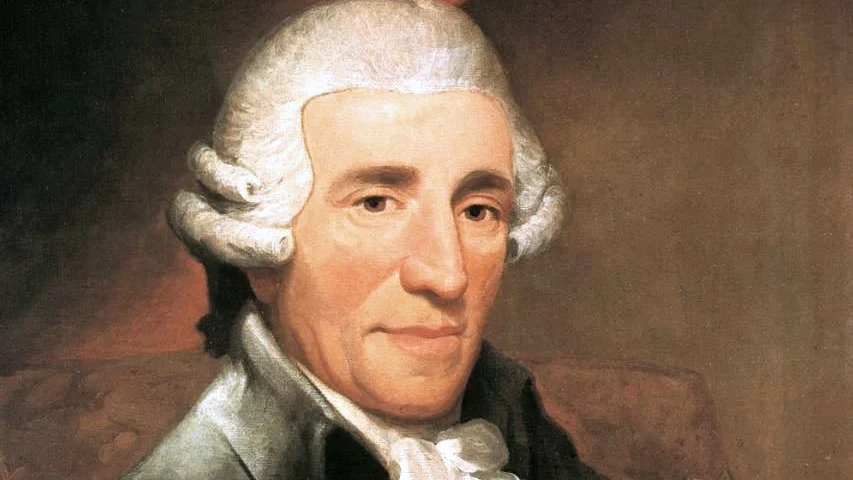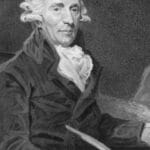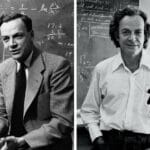Hey there, music lovers! Grab a coffee and get ready for a wild ride into the mind of Joseph Haydn, the musical genius who tickled ears and raised eyebrows back in the day. We’re about to spill the beans on his quirky habits, funny stories, and the surprising ways he revolutionized the music scene. So, sit back, relax, and let the wonders of Haydn’s world unfold!
Fun Facts About Joseph Haydn
Ever heard of Joseph Haydn? Maybe not by name, but you’ve likely heard the ripples of his influence. This guy was nicknamed the “Father of the Symphony” – and for good reason! Haydn didn’t just write symphonies, he practically reinvented them.
This dude was a musical trailblazer whose innovations set the stage for the likes of Mozart and Beethoven. Now, that’s a legacy! What’s even more amazing is that Haydn’s musical journey wasn’t a walk in the park. He didn’t have those fancy music lessons that many composers had back then. He was more of a “learn-by-doing” kind of guy.
He’d listen to pieces by bigwigs like Porpora and Bach, pick them apart, and figure out what made them tick. This self-taught approach helped him develop his own unique voice in the world of music. Talk about turning lemons into lemonade! And speaking of unique, let’s talk about his “Surprise” Symphony.
Word on the street is that Haydn wanted to shake things up a bit during a concert. So, imagine this: a peaceful, almost sleepy melody is floating through the air, and BAM! A sudden loud chord throws everyone for a loop. Yup, that’s the “surprise,” and it worked like a charm. Even today, this symphony still makes people chuckle – and maybe spill their tea. But here’s the kicker – Haydn’s most famous piece might not be the “Surprise” Symphony, even with its clever twist.
That honor could go to his “Farewell” Symphony. The story goes that Haydn and his fellow musicians were overworked and homesick. So, during the symphony’s final movement, the musicians slowly stopped playing, blew out their candles, and walked off stage one by one. It was Haydn’s subtle way of saying, “We need a break, boss!” And wouldn’t you know it, the ploy worked!
Beyond all the musical genius, Haydn was quite the character. He even had a sense of humor about his work. Once, he jokingly described opera as “a very expensive kind of comedy.” Classic Haydn! From his unorthodox beginnings to his witty symphonies, Joseph Haydn’s life and music were anything but ordinary. He pushed musical boundaries, played with audience expectations, and charmed his way into music history.
So next time you hear a symphony, take a moment to think of good ol’ Haydn, the father of the genre and a true original.
What Are Interesting Facts About Joseph Haydn?
So, we’ve talked about how important Joseph Haydn was to music – he’s even called the “Father of the Symphony” for a reason! But what else is there to know about this guy?
Turns out, a lot! First off, imagine being taught music by your own cousin. Well, that’s how Haydn got his start! His relative, Franz Joseph Haydn (sounds familiar, right?), was a teacher and choirmaster, and probably saw something special in young Joseph.
Then, Haydn met a prince – Prince Nikolaus Esterházy, to be exact. This wasn’t just a friendly hello, though. The prince hired Haydn as his very own Kapellmeister, which basically means he was in charge of all the music going on at the prince’s palace! Talk about a dream job for a composer! Now, you know how some songs have a part that just makes you jump? Haydn did that, but with a whole orchestra! His “Surprise” Symphony is famous because there’s this super loud chord that, well, surprised everyone who heard it! It’s like he wanted to keep his audience on their toes!
And speaking of surprises, Haydn had another trick up his sleeve. In his “Farewell” Symphony, the musicians actually walked off stage one by one. It’s kinda funny to imagine, but it was also Haydn’s way of showing that everyone missed being home after being away with the prince for a while. Clever, right? But what’s really cool about Haydn’s music is that it’s not all serious all the time.
He actually had a playful side, and you can hear it in his work! It’s like he’s adding a little wink to the music, making people smile. Haydn had a super long and awesome career – over 100 symphonies, operas, chamber music, you name it! He was like a music-making machine! And the best part? His music is still around today, inspiring musicians and making people happy. He made his mark on music history, and even influenced other big names like Mozart and Beethoven.
Not bad for a guy who started out learning from his cousin, right?
Why Was Haydn Unique?
Okay, so we’ve talked about how Haydn basically wrote the rulebook for symphonies, right? But there’s way more to why he’s considered a musical rockstar. Think about it: over 100 symphonies!
That’s like writing a hit song every year for, well, a really long time! And it wasn’t just quantity; he gave the symphony its shape, its structure, its whole vibe. Before Haydn, it was like a band jamming without a clear direction.
He came in and said, “Here’s how you do it, folks!” And get this – string quartets and piano trios? Yeah, those were pretty much his babies too. He saw the potential in these groups of instruments and wrote music that made them shine. But here’s where it gets really fun.
Haydn was a bit of a prankster, and it showed in his music. Ever heard of the “Surprise Symphony”? Imagine you’re dozing off during a concert (don’t lie, we’ve all been there!), and BAM! This super loud chord jolts you awake. That’s Haydn messing with you, and the audience loved it! Now, imagine two young guys named Mozart and Beethoven looking up to Haydn.
They were like sponges, soaking up his ideas and then adding their own twists. Without Haydn’s influence, who knows what classical music would sound like today? The thing about Haydn is, he wasn’t just a musical machine. He was a choirboy growing up, so he knew how to write for voices like a pro. And he was lucky enough to have a prince as his patron – basically, a rich fan who gave him money to compose whatever he wanted! That freedom allowed him to experiment and try new things, which is how he came up with so many groundbreaking ideas.
Oh, and speaking of groundbreaking, did you know he wrote Austria’s national anthem? Talk about leaving your mark! But let’s be real – Haydn was also known for being a funny guy, and that humor pops up in his music.
He once jokingly called opera “expensive comedy.” And remember the “Farewell Symphony”? Picture this: the musicians are playing, and one by one, they blow out their candles and walk off stage. Turns out, Haydn was sending a message to his boss, hinting that everyone was homesick and wanted to go home! Classic Haydn move.
The craziest part? Haydn was mostly self-taught. He just had this burning curiosity and passion for music, and he ran with it. He proves that sometimes, you don’t need fancy schools or teachers – just raw talent and a whole lot of heart. So, next time you hear a symphony, a string quartet, or even just a playful melody that makes you smile, think of Joseph Haydn, the guy who made it all possible. He wasn’t just a composer; he was a revolutionary, a prankster, and a true original. And his music? Well, it’s still making people laugh, think, and feel things centuries later.
What Is Joseph Haydn Most Famous For?
So, we’ve talked about Haydn’s life, but what about the music that made him a legend? Well, he’s often called the “Father of the Symphony” and the “Father of the String Quartet,” and for good reason! He didn’t just compose these musical forms, he revolutionized them.
Imagine taking something like a basic recipe and transforming it into a gourmet masterpiece – that’s what Haydn did for symphonies and string quartets! Think of it this way: before Haydn, symphonies were simpler.
He came along and said, “Let’s add more instruments! Let’s experiment with different combinations of sounds! Let’s tell stories with music!” And boom! The symphony as we know it was born. He did something similar with the string quartet, which is basically a mini-orchestra with two violins, a viola, and a cello.
Haydn saw the potential of this group and wrote music that was intricate, emotional, and just plain beautiful. Now, let’s talk about some of his greatest hits!
Ever heard of the “Surprise” Symphony? Well, it’s not called that for nothing! Imagine yourself in the audience, settling in for a quiet movement, and suddenly – BAM! – a super loud chord bursts out of nowhere. It’s said that Haydn did this to wake up anyone who might have dozed off. He was a bit of a prankster, that Haydn.
Then there’s the “Farewell” Symphony, which is famous for its ending. As the music winds down, the musicians stop playing one by one and blow out their candles, leaving the stage in darkness. Why? Well, the story goes that Haydn’s musicians were homesick after a long tour, so he wrote this piece as a subtle hint to his patron that it was time to go home! Clever, right? These are just a couple of examples, but Haydn wrote tons of other amazing symphonies, like the “Military” and the “Drumroll,” each with its own unique flavor. His music is full of wit, charm, and emotion, and you can really hear his personality shining through.
It’s important to note that we’re still uncovering things about Haydn’s life and work. Music historians are always digging up new information, and who knows what other surprises they might find! But one thing’s for sure: Haydn’s influence on music is undeniable.
He paved the way for other musical giants like Mozart and Beethoven, and his work continues to inspire and move people all over the world. So, next time you hear a symphony or a string quartet, remember the name Joseph Haydn – the guy who helped shape the sound of classical music.
Did Joseph Haydn Have a Wife?
You bet he did! Joseph Haydn tied the knot with Maria Anna Keller in 1760. Interestingly enough, she wasn’t his first choice. Haydn had his eye on Maria Anna’s younger sister, Therese, but she decided to become a nun instead. Talk about a plot twist! Now, Haydn might have been a rockstar composer, but his marriage was a different story altogether.
From what we can gather, it wasn’t exactly a match made in heaven. Rumors flew around about both Haydn and Maria Anna having affairs, which probably didn’t help things. Despite all the drama, they stuck it out until Haydn passed away in 1809. Here’s the thing about historical relationships – it’s tough to know all the nitty-gritty details.
We can look at records and letters, but those only paint part of the picture. Maybe Haydn and Maria Anna found some common ground we don’t know about. Or maybe they just felt stuck. Who knows? It’s like that old saying, “history is written by the victors.” And in this case, the “victors” were probably more concerned with Haydn’s music than his love life. So, while we know Haydn was married, the quality of that marriage remains a bit of a mystery. It’s a good reminder that even famous people have their own personal struggles, and sometimes, we just don’t get all the answers.
Why Is Haydn’s Nickname Papa?
So, we’ve been talking about Joseph Haydn, this big-time composer from way back in the Classical period. And you might have heard people call him “Papa Haydn.” It’s a cute nickname, right? But why “Papa?” Well, it turns out there are a few reasons, and they all point to what a cool dude Haydn was. First off, imagine Haydn in the middle of a rehearsal with his orchestra.
He wasn’t some scary, demanding maestro. No way! Haydn was known for being kind and supportive, almost like a father figure to the musicians. They really looked up to him, and that’s probably where the nickname “Papa” first started. Then there’s the Mozart connection.
You know Mozart, right? The musical genius? Well, he was actually good friends with Haydn – and get this – Mozart was way younger than Haydn. Think of it like a mentor-mentee situation. Mozart even called Haydn “Papa Haydn,” which shows how close they were. It’s like Mozart saw Haydn as a musical father figure, too!
But there’s more to it than just being nice. Haydn was a musical trailblazer! He practically invented the symphony and the string quartet as we know them today. That’s why people call him the “Father of the Symphony” and the “Father of the String Quartet.” So, the “Papa” nickname? It’s like a respectful nod to his massive influence on music. And here’s the thing: we might never know for sure if one specific reason stuck, or if it was a combination of everything.
But isn’t that part of what makes history so interesting? It’s like a puzzle! We gather the clues – the nicknames, the relationships, the impact – and we get a glimpse into what made someone like Haydn so special.
How Old Was Haydn When He Died?
So, we know Franz Joseph Haydn was born on March 31, 1732, and he passed away on May 31, 1809. Doing a little math, that means he lived to be 77 years old. That’s a pretty good run, especially for that time period!
He accomplished a lot in those years, leaving behind a treasure trove of musical masterpieces that people still listen to and enjoy today. It’s interesting to think about how Haydn lived during a time when life expectancies were much shorter than they are now.
Even with the limited medical knowledge of his day, he managed to live a long and productive life, composing some of the most important and influential music in history. Some historians and musicologists believe that Haydn’s longevity might be attributed to a few things. For one, he seems to have been a generally healthy person.
Second, he lived a relatively stable and comfortable life once he achieved success as a composer. This likely reduced his stress levels compared to someone struggling to make ends meet. Of course, these are just educated guesses. We can’t know for sure all the factors that contributed to his lifespan. Regardless, 77 years allowed Haydn to leave an indelible mark on the world of music.
He’s often called the “Father of the Symphony,” and for good reason! He composed over 100 symphonies, which is an incredible feat in itself. But beyond just the quantity, he revolutionized the way symphonies were structured and written, basically inventing the blueprint for what we now consider the “classical” symphony. And let’s not forget, Haydn didn’t just write symphonies.
He was a true musical chameleon, composing concertos, operas, and choral works too. His influence extended beyond his own compositions, as he mentored and inspired countless other musicians, shaping the future of classical music. We owe a lot to Haydn, the 77-year-old musical giant!
What Are Three Interesting Facts About Beethoven?
We all know Beethoven was a musical genius, but did you know there’s still some mystery surrounding his exact birthdate? And what about his childhood?
It wasn’t all sunshine and rainbows. Let’s delve a little deeper into the life of this fascinating composer with three intriguing facts you might not know.
- The Case of the Missing Birthday: You’d think we’d know the exact birthdate of someone as famous as Beethoven, right? Well, it’s not quite that simple. We celebrate his birthday in December 1770, but that’s actually the date of his baptism. Historians haven’t been able to pin down the precise day he was born. It’s like a little historical puzzle, adding to the mystique of the man and his music.
- A Father’s Push, A Son’s Talent: Imagine being pushed into music lessons by your parents. Well, for young Ludwig, it wasn’t just encouragement, it was intense. His father was determined to make him a child prodigy, even subjecting him to demanding practice sessions. Some might say it was harsh, but there’s no denying that this early and rigorous training set the stage for Beethoven’s incredible musical abilities, which were already evident by the time he was just 12 years old.
- The Silent World of a Musical Genius: Can you imagine composing masterpieces while your hearing fades away? That’s the reality Beethoven faced. Around the age of 27, he started experiencing a constant buzzing in his ears, a condition we now know as tinnitus. Over time, this progressed until he was nearly deaf. But here’s the thing: Beethoven refused to let this defeat him. He continued to compose, producing some of his most celebrated works while living in a world of silence.
These are just a few glimpses into the life of a man who was far more than just a composer. Beethoven’s uncertain birthdate, his driven upbringing, and his courageous struggle with hearing loss all add layers to the story of a musical icon. He wasn’t just a genius; he was a complex individual who overcame immense challenges to share his gift with the world.
What Was Haydn Like as a Person?
So, we’ve talked about Haydn’s music, but what about the man himself? What was he like when he wasn’t composing masterpieces? Well, by all accounts, Joseph Haydn was a pretty stand-up guy.
He was known for his kindness and generosity, always willing to lend a hand to those less fortunate. He was also a bit of a jokester, loving a good prank and a hearty laugh. It seems like he knew how to enjoy life, both on and off the stage. Thinking about Haydn’s generosity, there’s a story that probably gives a good glimpse into his character.
It seems Haydn was part of a musical group that wasn’t doing so hot financially. When the organization finally went belly up, Haydn, already a successful composer, gifted the musicians the rights to some of his compositions. This act of kindness meant they could actually earn some money from their final performance. Pretty cool, right? But Haydn’s life wasn’t all sunshine and roses.
Like everyone, he had his share of struggles. He was a deeply religious man – a devout Catholic – and his faith played a huge role in his life and his music. It’s likely that he found comfort and strength in his beliefs, especially during tougher times. And speaking of tough times, imagine being married for over 40 years to someone who doesn’t really get you.
That was Haydn’s reality. While his wife, Maria Anna Keller, wasn’t exactly his biggest fan (some say she even used his manuscripts as baking paper!), Haydn still treated her with respect and provided for her. Despite these challenges, Haydn seems to have been a pretty happy dude.
He adored spending time with his friends, and he was crazy about his work. This guy was dedicated! He poured hours and hours into perfecting his craft, always striving to learn and grow as a musician. There’s this image of Haydn that emerges – a guy who was serious about his music but didn’t take himself too seriously.
He was a man of faith, a loyal friend, and, despite the ups and downs, someone who found joy in life’s simple pleasures. While we can’t travel back in time and share a beer with Haydn (wouldn’t that be something?), getting to know him a little bit through anecdotes and historical accounts makes his music that much richer.
It allows us to hear the echoes of his laughter, his faith, and his kind heart resonating through the notes.
How Many Hours of Music Did Haydn Write?
We’ve already touched on just how much music Haydn composed, but it’s truly mind-boggling to think about the sheer volume of masterpieces he created. Imagine listening to music non-stop – we’re talking over 340 hours of it!
That’s how much music Haydn penned over his lifetime. To put it into perspective, that’s like listening to music continuously for almost two whole weeks! Now, you might be wondering what makes up this impressive musical mountain.
Well, Haydn wasn’t a one-trick pony. He composed across a wide range of genres, each piece showcasing his incredible talent. We’re talking over a hundred symphonies (try saying that ten times fast!), over 90 string quartets (those elegant pieces for four string instruments), 62 piano sonatas, 32 piano trios, and a whole lot more. It’s like he had an endless well of musical ideas just bubbling over! Think of it this way: Haydn’s music wasn’t just about quantity, it was about quality, too.
His innovative approach to musical forms and techniques – the building blocks of music – left an enduring imprint on classical music, inspiring generations of composers that followed. In fact, big names like Mozart and Beethoven, giants in their own right, were heavily influenced by Haydn’s work. It’s like he provided the musical blueprint that helped shape the future of classical music! But Haydn wasn’t all seriousness and complex compositions. He also had a playful side, often injecting a dose of humour and lightheartedness into his music.
So, while his music might sound refined and sophisticated, listen closely and you might just catch a hint of mischief, a little twinkle in his musical eye. It’s important to remember that pinning down the exact number of hours of music Haydn wrote is a bit tricky. After all, we’re talking about a composer whose career spanned decades, and some pieces might have been lost to time or are still being discovered. But regardless of the precise figure, one thing is clear: Haydn’s impact on the world of music is immeasurable, and his prolific output continues to amaze and inspire music lovers around the globe.
Did Beethoven Ever Meet Haydn?
So, we know Beethoven looked up to Haydn – the guy was like a rockstar of classical music. Haydn’s music was everywhere, and Beethoven, being the ambitious young musician he was, wanted to learn from the best.
And yes, they definitely crossed paths. In fact, Beethoven actually went a step further and became Haydn’s student for a bit. Now, imagine those lessons! It wasn’t always smooth sailing between them – there are stories about their disagreements and clashes – you know how it is when a seasoned pro meets a fiery up-and-comer.
But even with a few bumps in the road, Haydn’s guidance played a big part in shaping the Beethoven we know and love today. It makes you wonder what they talked about, what musical tips Haydn passed on, and how those lessons echoed in Beethoven’s later masterpieces.
Are you curious about the extraordinary life of Faith Ringgold? Dive into a captivating collection of fun facts about Faith Ringgold. Discover her inspiring journey as an artist, activist, and trailblazing figure. Explore the intriguing world of John Steinbeck by uncovering fascinating fun facts about John Steinbeck.
Delve into his literary genius, personal struggles, and the profound impact his words continue to have on readers worldwide. Prepare to be amazed by the enigmatic figure of Kurt Cobain. Embark on a journey to uncover fun facts about Kurt Cobain, shedding light on his musical brilliance, personal turmoil, and the enduring legacy he left behind in the hearts of countless fans.
- How many weeks is 40 days: Quick Conversion Guide for Accurate Results - March 31, 2025
- How many feet is 300 meters? 984 Feet: Understand Length Conversions Easily - March 31, 2025
- Senior at What Age: Benefits & Eligibility Guide - March 29, 2025
















